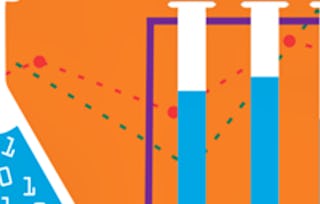Welcome to Introduction to Analytic Thinking, Data Science, and Data Mining. In this course, we will begin with an exploration of the field and profession of data science with a focus on the skills and ethical considerations required when working with data. We will review the types of business problems data science can solve and discuss the application of the CRISP-DM process to data mining efforts. A brief overview of Descriptive, Predictive, and Prescriptive Analytics will be provided, and we will conclude the course with an exploratory activity to learn more about the tools and resources you might find in a data science toolkit.

Intro to Analytic Thinking, Data Science, and Data Mining

Intro to Analytic Thinking, Data Science, and Data Mining
This course is part of Data Science Fundamentals Specialization

Instructor: Julie Pai
11,508 already enrolled
Included with
156 reviews
What you'll learn
The knowledge and skills needed to work in the data science profession
How data science is used to solve business problems
The benefits of using the cross-industry standard process for data mining (CRISP-DM)
Skills you'll gain
Details to know

Add to your LinkedIn profile
2 assignments
See how employees at top companies are mastering in-demand skills

Build your subject-matter expertise
- Learn new concepts from industry experts
- Gain a foundational understanding of a subject or tool
- Develop job-relevant skills with hands-on projects
- Earn a shareable career certificate

There are 4 modules in this course
Welcome to Module 1, Data Science: The Field and Profession. In this module, we will review data science as a field and explore the concepts of small and big data. We will also survey the skills of successful data scientists and discuss the types of business problems data scientists might be asked to solve in the near future.
What's included
2 readings1 discussion prompt
Welcome to Module 2, Data Science in Business. In this module, we will take a closer look at the applications of data science in a business environment and discuss ethical considerations to keep in mind when working with data.
What's included
1 video2 readings1 assignment
Welcome to Module 3, Data Mining and an Overview of Data Analytics. In this module we will begin with an explanation of CRISP-DM, a cross-industry standard process for data mining. We will also provide an introduction to descriptive, predictive and prescriptive analytics.
What's included
2 readings1 discussion prompt
Welcome to Module 4, Solving Problems with Data Science. In this last module of the course we will explore some real-world applications of data science solutions and take a closer look at the types of tools and programs you might expect to see in a data science toolkit.
What's included
1 video2 readings1 assignment1 discussion prompt
Earn a career certificate
Add this credential to your LinkedIn profile, resume, or CV. Share it on social media and in your performance review.
Instructor

Offered by
Explore more from Data Analysis
 Status: Free Trial
Status: Free Trial Status: Free Trial
Status: Free Trial Status: Free Trial
Status: Free Trial Status: Free Trial
Status: Free TrialUniversity of Colorado Boulder
Why people choose Coursera for their career

Felipe M.

Jennifer J.

Larry W.

Chaitanya A.
Learner reviews
- 5 stars
57.69%
- 4 stars
19.23%
- 3 stars
12.82%
- 2 stars
5.76%
- 1 star
4.48%
Showing 3 of 156
Reviewed on Jul 30, 2025
For Beginner, this is good insight to understand what Data Scientist is , What is his role, Which tools need to be used upon and a road map to become Data Scientist
Reviewed on Sep 22, 2022
I learnt about CRISP DM process, Data Science tools, Decision Trees in this course.
Reviewed on Jan 2, 2021
I consider this course a must for one's journey into Data Science. The videos are short and to the point to serve the purpose of the course.

Open new doors with Coursera Plus
Unlimited access to 10,000+ world-class courses, hands-on projects, and job-ready certificate programs - all included in your subscription
Advance your career with an online degree
Earn a degree from world-class universities - 100% online
Join over 3,400 global companies that choose Coursera for Business
Upskill your employees to excel in the digital economy
Frequently asked questions
To access the course materials, assignments and to earn a Certificate, you will need to purchase the Certificate experience when you enroll in a course. You can try a Free Trial instead, or apply for Financial Aid. The course may offer 'Full Course, No Certificate' instead. This option lets you see all course materials, submit required assessments, and get a final grade. This also means that you will not be able to purchase a Certificate experience.
When you enroll in the course, you get access to all of the courses in the Specialization, and you earn a certificate when you complete the work. Your electronic Certificate will be added to your Accomplishments page - from there, you can print your Certificate or add it to your LinkedIn profile.
Yes. In select learning programs, you can apply for financial aid or a scholarship if you can’t afford the enrollment fee. If fin aid or scholarship is available for your learning program selection, you’ll find a link to apply on the description page.
More questions
Financial aid available,

